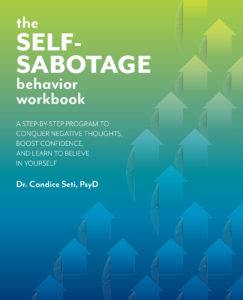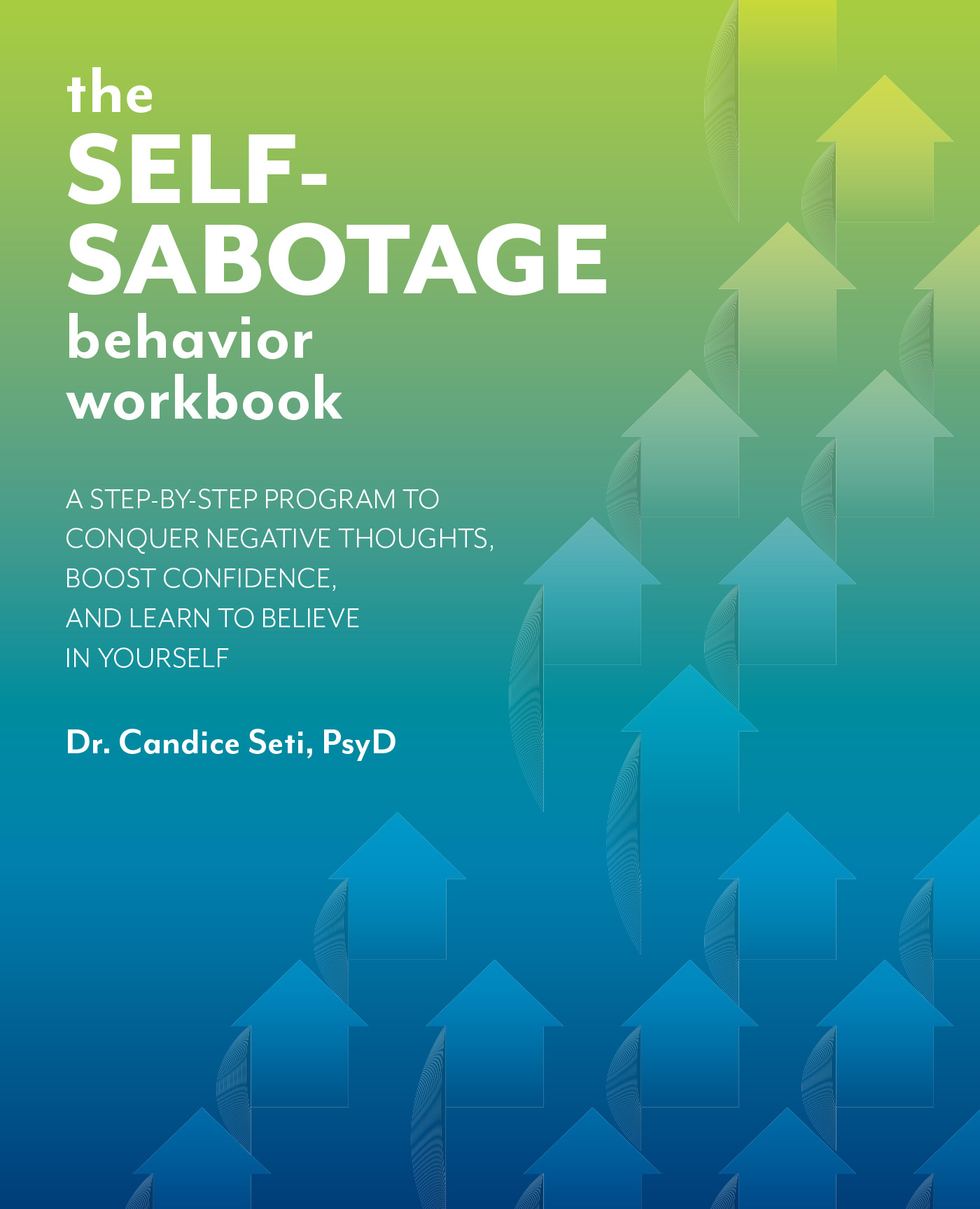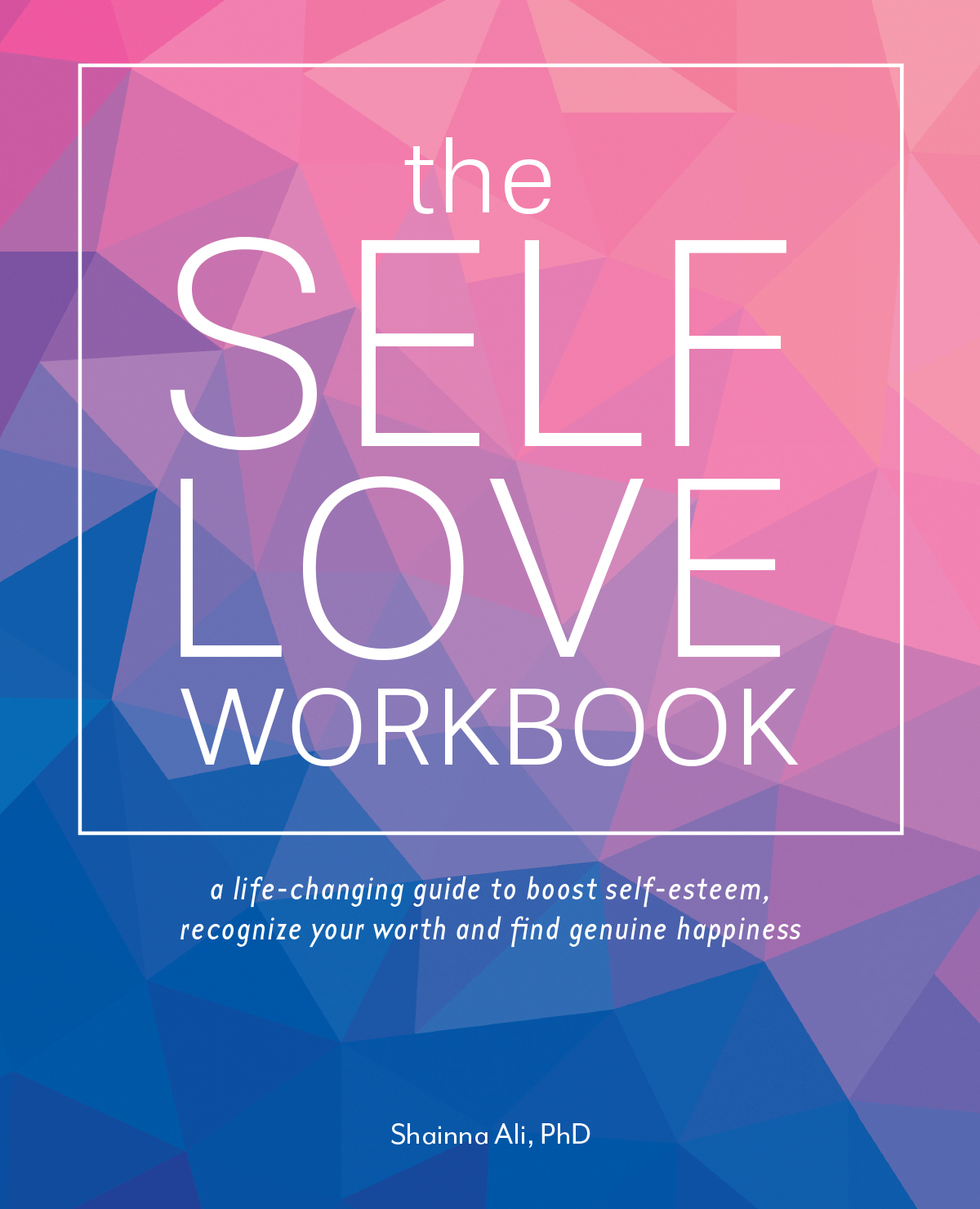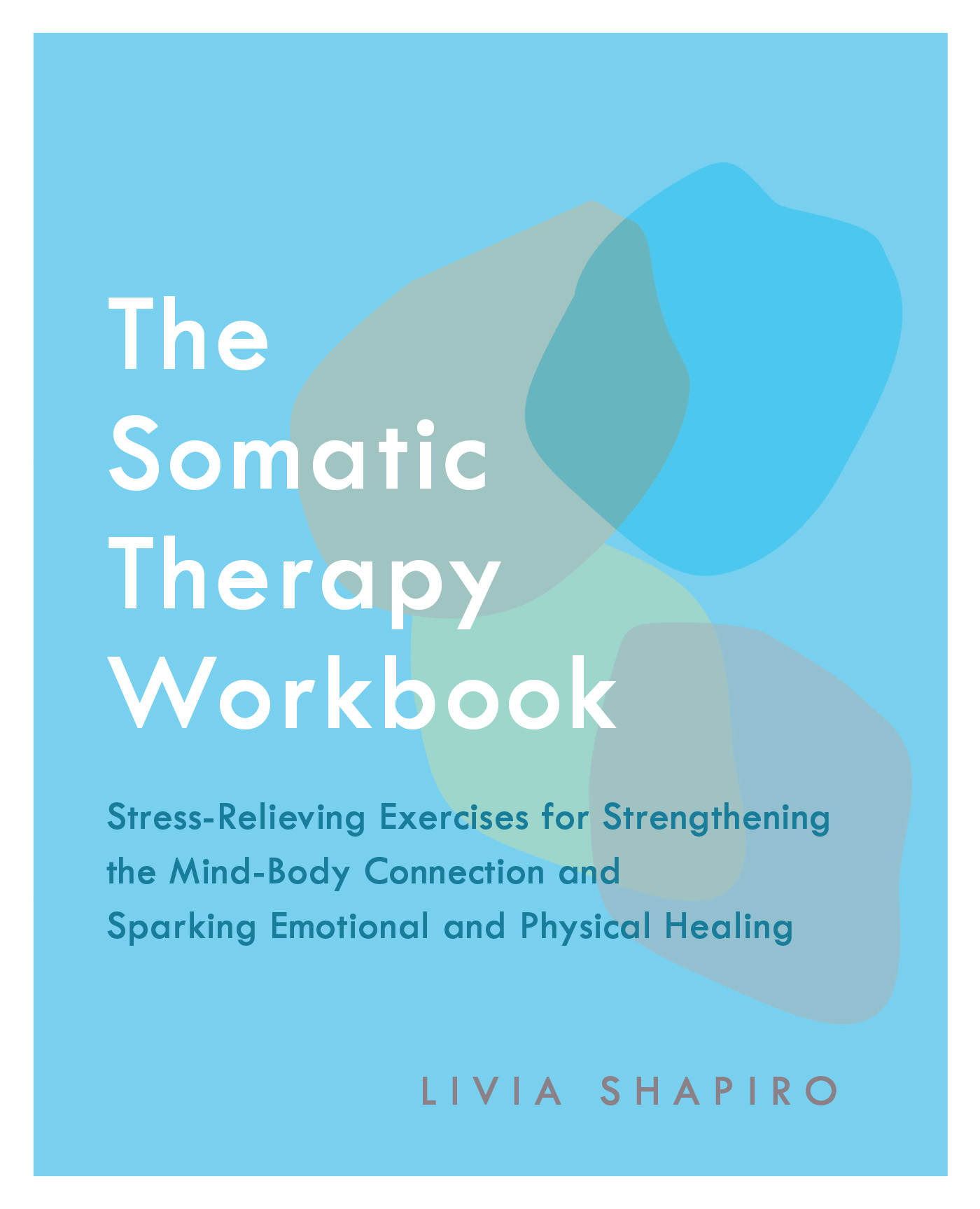
How to Stop Self Sabotage– New Workbook Lays Out Step-by-Step Program
- Book Sample /
- Self-Help
 The following is an excerpt from the new book The Self-Sabotage Behavior Workbook, written by Dr. Candice Seti, PsyD to help you overcome negative thoughts and finally stop self sabotage! Check out the intro to her program below.
The following is an excerpt from the new book The Self-Sabotage Behavior Workbook, written by Dr. Candice Seti, PsyD to help you overcome negative thoughts and finally stop self sabotage! Check out the intro to her program below.
* * *
Welcome, and congratulations on taking the first step to becoming a sabotage-fighting warrior! You are about to embark upon a journey that has the potential to change your life, build your confidence, and allow you to achieve your dreams. I’ve written this book as a clinical psychologist, but also as a reformed self-saboteur. I’ve personally struggled with being a procrastinator, a self-attacker, and an avoider (things we will discuss in depth later!) and have worked with hundreds of individuals who have struggled to help them stop self-sabotage in all its forms. In other words, I bring a lot of expertise and a lot of real-world experience to this program, and that is why I am confident that it can help you finally free yourself from the self sabotage that’s keeping you stuck in your life.
Before getting into the substance of the program, it’s important to understand what this program is and isn’t. This program is a collection of tools and skills that I have gathered together for the express purpose of helping you stop your self-sabotage—the way in which you stop yourself from being happy and achieving your goals. This program reflects years of education, clinical experience, and my own firsthand knowledge of what it takes to overcome self-sabotaging tendencies. My approach combines cognitive behavioral therapy, self-care, and paying close attention to your self-talk into a single program that you can work through at your own pace.
This book is also quite interactive. Most chapters will have you engaging in brainstorming activities or creating action plans. As such, most chapters will include worksheets. If you are a pen and-paper kind of person, you can write directly in the book or make photocopies. If you prefer to work on your computer or tablet, you can download all the worksheets in one workbook directly from www.selfsabotageworkbook.com.
The bottom line is that this program is designed to help you finally get out of your own way —a goal that is so elusive for so many people. It wouldn’t surprise me if other parts of your life also get better when you can stop self-sabotage, but don’t count on this program to be a panacea. Other problems may need other solutions. Along those lines, it is important to be very clear that this book does not replace medical care by the appropriate professionals. As you work through this book, keep in mind that it is not a medical manual.
Phew, now that we have that out of the way, let’s look at the program.
“As I look at my life, I might ask, ‘Who is the person that represents the greatest threat to me?’ And if I happen to have a mirror around somewhere, I can rather quickly answer that question.” —Craig D. Lounsbrough
You have a voice in your head.
No, you are not crazy. You don’t have multiple personality disorder. You’re not schizophrenic. You don’t need to check into a psych ward. You are a normal, healthy, functioning individual just like most of the rest of us. And yet, you still have a voice in your head (as does everyone else.) And unfortunately, that voice is out to get you—to stand in your way, to prevent you from achieving your goals and dreams, and to provide every reason not to do what you want to do. That voice is your self-sabotage.
What is self-sabotage?
The answer probably depends on whom you ask. If we look at Webster’s definition of sabotage, it is “an act or process tending to hamper or hurt.” Now think about that behavior being something you do to yourself, and you have a good idea of what I am talking about here. Urban Dictionary defines self-sabotaging as “one who keeps screwing things up for themselves. Usually not on purpose.” I like to think of self-sabotage as simply standing in your own way. In other words, you are blocking yourself from moving forward from the past or achieving whatever it is you want to do in life—finding a romantic relationship, getting a promotion, losing weight, traveling, or doing anything else that you find worth pursuing.
Sounds silly, right? If you want something, why would you stand in the way of achieving it? Why wouldn’t you just go and get it? But unfortunately, the human mind is not that simple. In fact, it is as far from straightforward as you can get. We don’t think from point A to point B most of the time, so sometimes we do things that are against our own interests. The human mind, and our thoughts and behaviors, are so complex that hundreds of thousands of people have devoted their lives to studying them. The only definite answer when it comes to human behavior is that there aren’t any definite answers!
Back to self-sabotage. We can agree that it sounds like a silly thing to do, but we all do it! You do it. How do I know? Well, you’re reading this book, so I’m assuming you’re looking for a way to stop this self sabotage problem. Also, I know because, as I said above, the human mind isn’t as logical and easy to understand as we might believe. Yes, every last one of us self-sabotages, no matter how intelligent we may be.
It’s easy to look at someone who’s achieved success and say he or she doesn’t self-sabotage. For example, let’s look at Ted. He’s been happily married for 15 years and has two delightful children, aged 9 and 6 years old. He’s a director at a large tech company and can easily support his family with his salary. He seems generally happy and well adjusted. On the surface, you would assume that he is someone who simply does not engage in self- sabotage. After all, he couldn’t have gotten to this happy, successful place in his life if he stood in his own way all the time, right?
But what if I told you that Ted has had the opportunity to apply for a vice-president job on three different occasions, and each time he failed to submit the necessary documents to be considered for the position? What if I also told you that he and his wife have been struggling for a few years now because she is constantly hassling him to actually finish the things he says he’s going to do around the house? And what if I told you that he has about $120,000 in credit card debt? Would these bits of information change your mind about him? Does he suddenly seem like someone you can relate to a bit more? Have you done similar things?
Some of us self-sabotage more frequently than others, and some of us sabotage ourselves in a way that is more debilitating, but we all do it. Actually, it’s not a question of if we self-sabotage; the better question is how we respond to it and whether or not we fight it. Self-sabotage compounds itself and Introduction 5 gets stronger and stronger if we don’t stop it in its tracks and push it away. It’s usually the hows and the how oftens of self-sabotage that differentiate successful people from those who are stuck. That’s what this program is going to help you tackle.
When I talk to my clients about self-sabotage, every one of them will nod their head and say, “yes, I absolutely do that!” but when I ask them how or ask them to give me examples, they often have to pause to think about it. That’s because in order to know how you self-sabotage, you also have to know what you want. If you can’t pinpoint exactly what you want, you can’t see how self-sabotage stands in your way of getting there. In fact, self-sabotage is often the only thing standing in the way of achieving what you want. So, in order to clearly understand your self-sabotage, you also need to clearly understand what you want. Don’t worry: we will figure all that out together!
The Self-Sabotage Behavior Workbook
Overcome damaging behavior habits, conquer negative thought patterns, and learn to thrive in life. Constantly backsliding when it comes to healthy eating? Putting off deadlines until the last minute? Even when you’re committed to making change, sometimes it feels as if you are always in your own way. When your attitude and
Learn more











